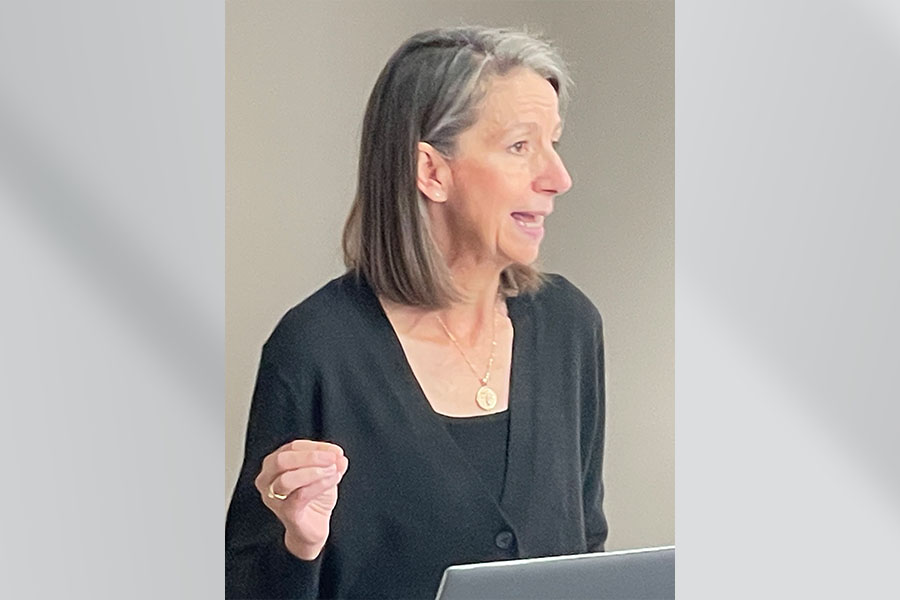Rebecca Richards-Kortum, PhD, knows what can happen when engineers and clinicians collaborate.
She shared the success of just such an arrangement when she delivered the 35th John S. Latta Lecture in April, speaking on “NEST360: How Engineers and Clinicians Can Work Together to Transform Outcomes for Small and Sick Newborns in Low-Resource Settings.”
Clinicians and engineers in the NEST360 (Newborn Essential Solutions & Technologies) program are working with African governments to implement a package of care to improve newborn survival in district hospitals, said Dr. Richards-Kortum, the Malcolm Gillis University Professor and director of the Rice 360 Institute for Global Health in the department of bioengineering at Rice University.
Following a look at the state of NICUs in many African hospitals, which included jerry-rigged and potentially dangerous attempts to provide oxygen to neonates, Dr. Richards-Kortum emphasized the possibilities of engineer-clinician collaboration. She pointed to the development of a CPAP machine – the Pumani Bubble CPAP – that led to a 20% drop in newborn fatality rates for African facilities increasing CPAP usage, including seven facilities that have cut newborn mortality between 10% and 50% over the past year.
Dr. Richards-Kortum said she hoped attendees would take away some models for innovative approaches to health challenges.
“Bioengineers and clinicians can work together to develop new technologies that address the needs of medically underserved populations, whether that’s in other countries or whether it’s in rural parts of our own country.
“It is so inspirational to see the transformation of a health care system where care was previously impossible for people in need and to see it evolve and become available.”
The Latta Lecture is named for the late John S. Latta, PhD. Dr. Latta taught courses in embryology and histology at UNMC from 1921 until 1963. He was chairman of the department of anatomy from 1940 to 1960, when he retired. Dr. Latta remained active for three more years and then was given an appointment at the Eppley Institute for Research in Cancer and Allied Diseases, where he continued his work until 1968. He died in 1989 at the age of 94.
The John S. Latta Lectureship was established by the UNMC College of Medicine Alumni Association (now Alumni Council) in 1980 to commemorate his dedicated service to the college. Dr. Latta’s son, Rex Latta, MD, is a 1957 graduate of the UNMC College of Medicine and resides in Omaha.
